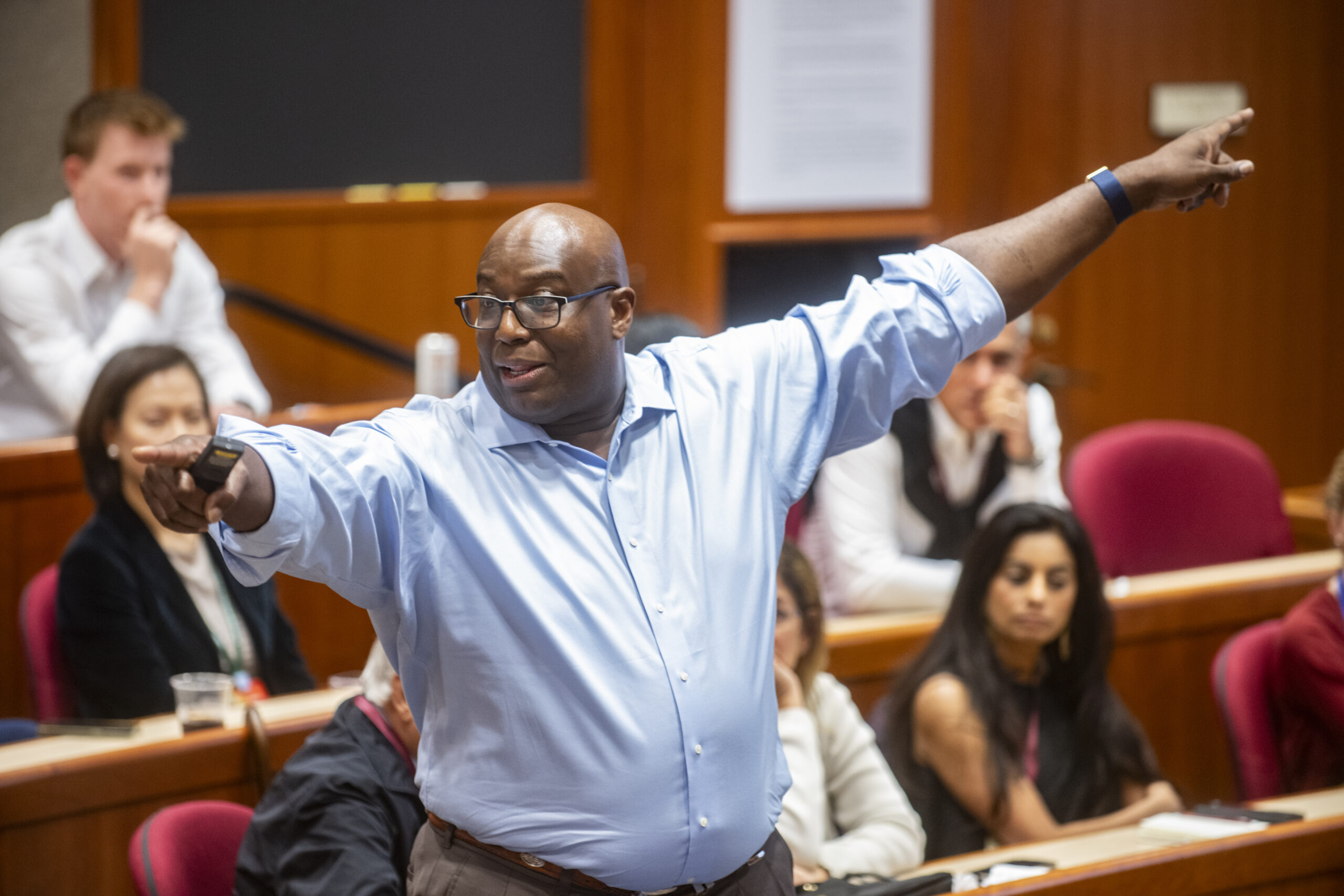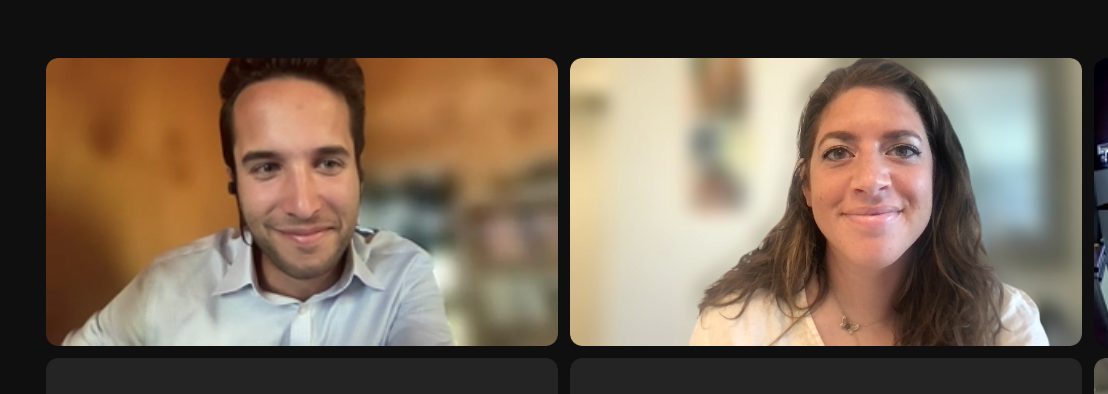

The HBS Summer Fellows Program enables students to apply their classroom training as they explore career opportunities in roles or regions where compensation is generally lower than the traditional MBA level. This summer, we are connecting with some of our 61 Social Enterprise Summer Fellows, who are working around the world to develop skills and knowledge while having significant responsibility and high impact.
What are you working on this summer?
This summer, we're focusing on the role of technology and community in making local government more effective and efficient.
We’re doing this through launching our venture, Civic Roundtable, a community platform for public servants to connect with their peers, share best practices, and ultimately build a more engaged and productive workforce across local government on topics that matter to all of us – from running safe and secure elections to implementing effective child welfare policies. The platform has been designed for and with the 22.5 million public servants working across 90,000 state, local, tribal, and territorial agencies.
We’re starting with Election Administration. Given recent news cycles, the political climate, and alarming rates of election officials exiting the public sector all together, it’s never been a more important time to support those who are protecting democracy, and ensuring our elections are free and fair.
Why did you choose this internship for the summer?
We fundamentally believe that the stakes are high for the future of government - spending is at an all-time high,1 trust in government is at an all-time low,2 and agencies are struggling to engage and retain their talent.3 Investing in the public servants that our most important civic institutions need has never been more critical.
At the same time, we’re also believers that practitioners have answers grounded in experience and passion. With the right tools in place for public servants to build community, we can also build capacity within our institutions and ultimately drive outcomes that matter to all citizens – like administering free and fair elections, protecting the welfare of our children, and improving the efficacy of government grantmaking programs.
We’re passionate about this problem because we’ve lived it. Together, we’ve worked alongside 150+ local institutions, designed and built technology for public servants, and operated at early-stage startups. Our theory of bottom-up change making in government is informed by these experiences, and by our belief that technology has a critical role to play in solving government collaboration challenges, and that public servants have a critical role to play in developing that technology.
What are your goals for this summer?
This summer, we want to prove what we’ve experienced in our jobs before grad school – that public servants are craving a space to connect on the granular topics that impact their daily work, and that a dedicated platform is the best way to make it happen.
We’re starting with a narrow focus in the Election Administration space through a fully integrated ecosystem of state agencies, associations, think tanks, and nonprofits and technical assistance providers who support the work of election officials across the country.
By the end of the summer, we hope to broaden our focus to other important topics in state & local communities – including child welfare, crisis intervention, behavioral health, and public safety more generally.
How has your MBA skillset prepared you to be successful in this role?
Our joint-degree (MBA/MPP) skill sets have been critical to our success in starting a venture at the intersection of the public and private sectors. Last year, our work with Harvard Kennedy School’s Defending Digital Democracy and Technology and Public Purpose projects allowed us to sharpen our subject matter expertise in the policy domains we are launching our product within. This past year, our experience with Harvard Innovation Labs’ Venture Program and the Social Enterprise Initiative’s Rising Leaders for Social Impact Forum exposed us to peers, professors, alumni, and advisors that are tackling different challenges in similar ways.
How has the summer influenced your thinking on future involvement in social enterprise?
Our experience has validated the urgency of our problem statement, the timeliness of our product, and the meaning of our work. Focusing on demand validation and product testing over the past year has allowed us to focus on product-market fit this summer. After launching our MVP in three states in June, we’re hitting the road in July to meet our users and partners where they are. We’re also attending a handful of conferences within the Election Administration and Local Government industries to meet with and learn from government executives, administrators, experts, and academics.
Yet throughout these experiences, it has been our ongoing conversations with frontline government workers that has taught us more about our work and about our world than anything else. Serving public servants is why we do what we do, and why we are beyond excited to officially launch this summer.
How can someone learn more about your organization?
Check out our website and blog, and join our mailing list!
[1] Urban Institute, The White House
[2] Pew Research Center, Gallup
[3] Deloitte, OPM